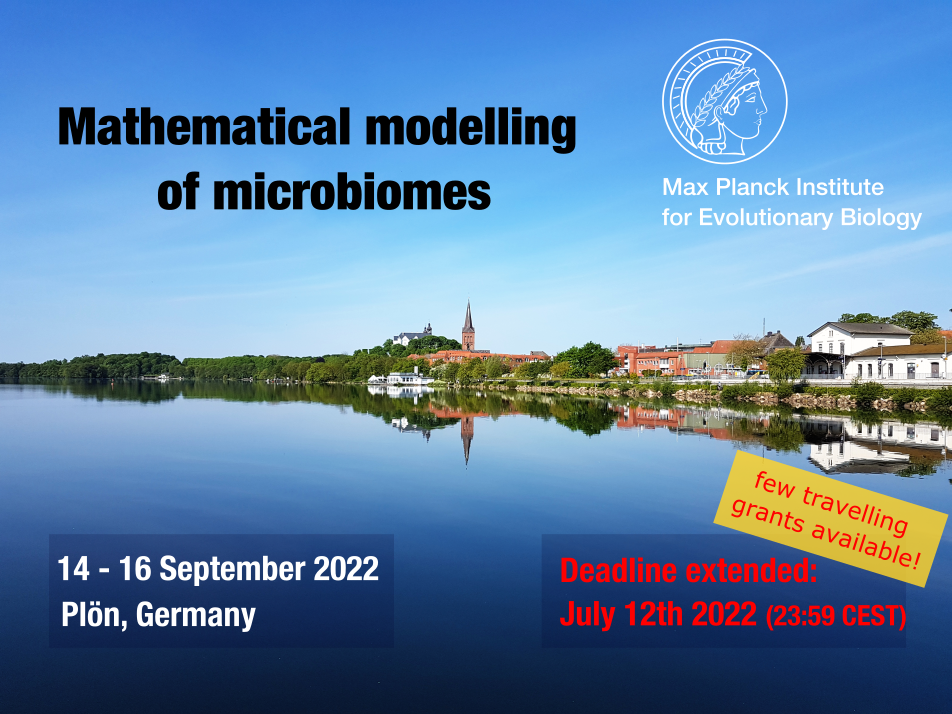Speaker
Description
Authors: Caitlin Guccione, Cameron Martino, Antonio Gonzalez, Rob Knight, Kit Curtius
Microbes are abundant in human cancers and specific cancer types have unique microbiomes. Understanding the role of microbes in cancer development, progression, and metastasis could transform clinical cancer diagnostics and prognostics.(1) Although research on the cancer microbiome is expanding, previous studies mainly focus on static differences in microbial abundances. Alternatively, mathematical modeling of microbial evolution within human hosts can improve our understanding of the expected changes in microbiome composition over time and contextualize important dynamics throughout carcinogenesis. We first created a robust bioinformatics pipeline that extracts information on microbial taxa present within whole genome sequencing (WGS) data of human tissue samples. This pipeline can be applied to the large number of such datasets publicly available, enabling joint analysis of host genomic alterations and the surrounding microbial communities. To quantify microbial community assembly in the stages of progression to cancer, we considered esophageal adenocarcinoma (EAC) as a case study. EAC arises in patients with the metaplastic precursor Barrett’s esophagus (BE), but the natural history of genomic changes in both host and microbial DNA is not well understood.(2) There is a clinical need to understand these changes occurring in patients as they progress to EAC, and use this to tailor prevention strategies. After extracting microbial taxonomic information with our pipeline, we applied mathematical models of neutral evolution(3) to WGS data from patient samples representative of the sequential stages of progression to EAC: normal esophagus, esophageal tissue from patients with GERD (gastroesophageal reflux disease), BE and finally EAC. Intriguingly, we found evidence for neutrality across all stages of pre-cancer progression (goodness of fit to the neutral model R^2 > 0.85 for normal, GERD and BE) but not for EAC (R^2 = 0.47). We also analyzed a recent case-control WGS dataset of samples from BE patients who later progressed to EAC (‘progressors’) versus samples from BE patients who did not progress (‘non-progressors’).(4) We found that the occurrence vs. abundance of Helicobacter pylori (H. pylori), a bacteria associated with decreased risk of EAC, did not follow patterns predicted using the neutral model in non-progressor BE samples. To address the potential for non-neutral behavior, we then performed model simulations that included selection(5) by assuming a higher birth or lower death rate for H. pylori versus other neutrally evolving microbial species. Identifying relevant assumptions for such evolutionary models in human cancer progression is ongoing work and will yield important insights when applied to large cancer datasets in future studies. 1. G. D. Sepich-Poore, C. Guccione, L. Laplane, T. Pradeu, K. Curtius, R. Knight, Cancer’s second genome: Microbial cancer diagnostics and redefining clonal evolution as a multispecies process. Bioessays. 44, e2100252 (2022). 2. C. Guccione, R. Yadlapati, S. Shah, R. Knight, K. Curtius, Challenges in determining the role of microbiome evolution in Barrett’s esophagus and progression to esophageal adenocarcinoma. Microorganisms. 9, 2003 (2021). 3. M. Sieber, L. Pita, N. Weiland-Bräuer, P. Dirksen, J. Wang, B. Mortzfeld, S. Franzenburg, R. A. Schmitz, J. F. Baines, S. Fraune, U. Hentschel, H. Schulenburg, T. C. G. Bosch, A. Traulsen, Neutrality in the metaorganism. PLoS Biol. 17, e3000298 (2019). 4. T. G. Paulson, P. C. Galipeau, K. M. Oman, C. A. Sanchez, M. K. Kuhner, L. P. Smith, K. Hadi, M. Shah, K. Arora, J. Shelton, M. Johnson, A. Corvelo, C. C. Maley, X. Yao, R. Sanghvi, E. Venturini, A.-K. Emde, B. Hubert, M. Imielinski, N. Robine, B. J. Reid, X. Li, Somatic whole genome dynamics of precancer in Barrett’s esophagus reveals features associated with disease progression. Nat. Commun. 13, 2300 (2022). 5. R. Zapién-Campos, M. Sieber, A. Traulsen, The effect of microbial selection on the occurrence-abundance patterns of microbiomes. J. R. Soc. Interface. 19, 20210717 (2022).

